Best CRM tools for your educational institution
In the education sector, there’s no shortage of data. Education administrators need to collect, organize, manage, and analyze a wide range of information, from students’ contact information and vaccination status to their grades and test scores. If all this data is stored in disparate systems — or worse, on paper — accessing it becomes a time-consuming process.
Having all of your data in one system makes it easier to find, sort, and act on — and that’s where a CRM comes in. There are many benefits to using a CRM beyond just data storage, and there are many ways educational organizations can put this versatile type of platform to use to better serve their students and the community.
This guide is for those who are new to using a CRM in education. We’ll explore the advantages of this type of platform and the many use cases for it. Plus, we’ll present you with five leading education CRM tools that educational institutions can explore.
What a CRM for education can do
A customer relationship management (CRM) platform is an online tool that helps users collect, organize, manage, and analyze data related to customers. While educational institutions primarily use CRMs for data pertaining to prospective, current, and past students, many institutions also use CRMs for managing data related to parents, staff, donors, and other stakeholders. A CRM collects data from different sources, such as online forms, applications, interviews, and other systems, and aggregates it all in one convenient and easy-to-access location.
The type of data a CRM in education gathers can vary from school to school, but it can include
- Contact details
- Parent information
- Health information
- Grades
- Extra-curricular activities
- Enrollment status
- Donor status
Introducing a new technology platform to an educational institution can seem like a daunting task, but CRMs offer many advantages for schools, such as
- Consolidated information: Education CRMs improve record-keeping by aggregating vast amounts of data all in one place. They make it easier for administrators to find the information they need.
- Automation support: Education administrators have many tedious tasks to deal with, such as sending emails or notifications. Many CRM tools can automate these workflows. They’re also capable of segmenting students by certain criteria, such as enrollment status.
- Deeper analytics: Many educational institutions use CRMs to derive insights into enrollment, fundraising, performance, and more. An education CRM can help you spot trends, understand anomalies, and make predictions for future school years.
- Data sharing: Educational institutions can more easily share — and leverage — available data within and across departments when they use a CRM. They can also easily import and export large amounts of data.
How to use a CRM in education
Organizations in the education sector can use CRM platforms in many different ways, helping them meet goals related to enrollment or fundraising. Here are some of the most common ways to use an education CRM:
- Personalizing campaigns: Regardless of whether you’re reaching out to prospective students or alumni, a CRM can help your institution customize content. For example, CRMs can pull student names and include them in emails for specific offers or segment student lists by enrollment status.
- Integrating data across systems: Many CRMs come with multiple integration capabilities, so they can easily connect with other tools like communication platforms, project management systems, email marketing systems, and more. This way, you can access data from different systems in order to more effectively complete certain tasks.
- Streamlining enrollment and admissions: With a CRM tool, schools can reduce the need for paperwork by automating certain types of data capture and sharing. For example, if a parent already has a student enrolled at a school, their contact information will be on file. When they want to enroll another child, they won’t need to provide their information again.
- Engaging with donors: In some schools, donors provide a significant source of funding. Managing donor relationships and keeping track of each interaction is a time-consuming job, and CRMs can provide support. You can use a CRM to manage information related to contacts and donor preferences and easily stay in touch with automated messaging.
- Managing event attendees: A CRM is a great tool for identifying guests and tracking invitations and responses for school events, such as parent council meetings, fundraising events, school reunions, fun fairs, and more.
- Driving data-supported decisions: As a central data hub, a CRM can support you in making important decisions for the future of the school with regard to enrollment, donations, events, and more.
Which leading education CRMs are worth a look
With so many options on the market, how do you know which CRM to use for your educational institution? Here are five leading options you’ll want to explore.
1. Jotform
Jotform is a powerful data collection tool that makes an excellent CRM platform for the education sector.
It’s easy to collect information with Jotform’s dozens of industry-specific online form templates, such as enrollment forms, scholarship application forms, and donor forms. Then, you can create a customized CRM tool to organize, track, and manage your data with Jotform Tables.
It also has reporting tools you can use to better understand the data you collect. Plus, Jotform integrates with many business tools schools use, such as cloud storage and project management solutions, so it’s easy to add it to your existing processes.
Jotform offers a free plan as well as four paid plans starting at $34 per month. It also offers a 50 percent discount for educators and a 30 percent discount for educational institutions on Enterprise plans.
2. Salesforce
Salesforce is a leading CRM platform that offers special features for the education sector, such as AI tools to personalize student paths to graduation, a digital campus platform, a marketing and communications platform, and much more. It supports all aspects of the student journey, from enrollment and admissions to alumni relations.
Salesforce offers multiple plans and products for the education sector.
3. Zoho CRM
Zoho offers a suite of business tools, including a CRM system that works well for the education sector. It has a lead and contact management module, which is useful for student, donor, and staff information. Plus, it offers pipeline tracking and forecasting tools to plan for upcoming school years.
Zoho also integrates with a number of other tools, including social media platforms that you can leverage to manage student engagement.
Zoho has four paid plans starting at $14 per month and periodically offers limited-time free trials.
4. HubSpot
HubSpot is a popular CRM tool that offers specialized features for educators and administrators. It enables you to track prospect admission journeys, conduct marketing campaigns, and build school-specific automated workflows. HubSpot also offers many integrations with other business solutions.
HubSpot offers a free plan as well as a variety of paid plans for different products.
5. LeadSquared
LeadSquared is a CRM platform that’s geared toward the higher education sector. It enables you to map admissions journeys, track applicants, manage student activity, and more. It also comes with a student portal, extensive reporting features, and marketing automation tools.
LeadSquared offers multiple CRM tools, each with different tiers of paid plans.
What makes Jotform a powerful CRM for education
If you’re looking for a flexible and easy-to-use platform for managing all of your student, prospect, donor, and other stakeholder data, then Jotform has you covered.
This solution enables educational institutions — from preschools to universities — to create a CRM system based on their needs using ready-to-use form templates to collect data. Each form is easy to customize using the drag-and-drop form builder, and no coding experience is required. Schools can then manage the data collected through their forms in Jotform Tables and build a custom CRM for their needs.
Schools collect a lot of confidential information, from student addresses to health information, and Jotform takes the security of that information seriously. Every form created with Jotform is protected with a 256-bit SSL (secure sockets layer) connection, and you can further encrypt data to ensure it remains in the right hands.
Plus, Jotform comes with an array of tools to help you use and manage the data:
- Jotform Approvals can help you create automated workflows with triggers and actions.
- Jotform Report Builder is perfect for creating visually stunning reports to help you better understand the data in your CRM.
A CRM for education needs to offer the ability to securely collect different types of data and manage it effectively, and Jotform helps you do that and more!
Photo by LinkedIn Sales Solutions on Unsplash


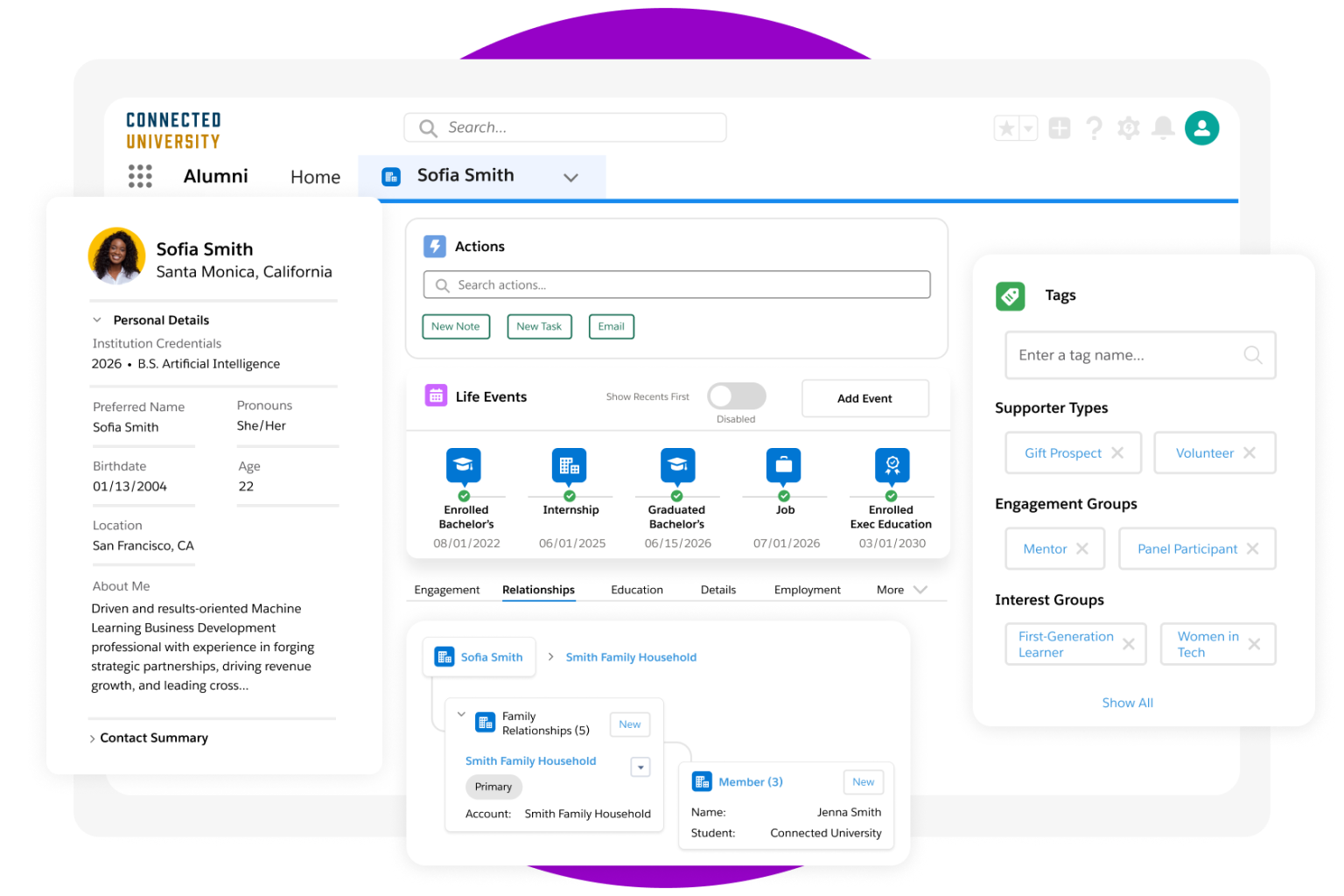
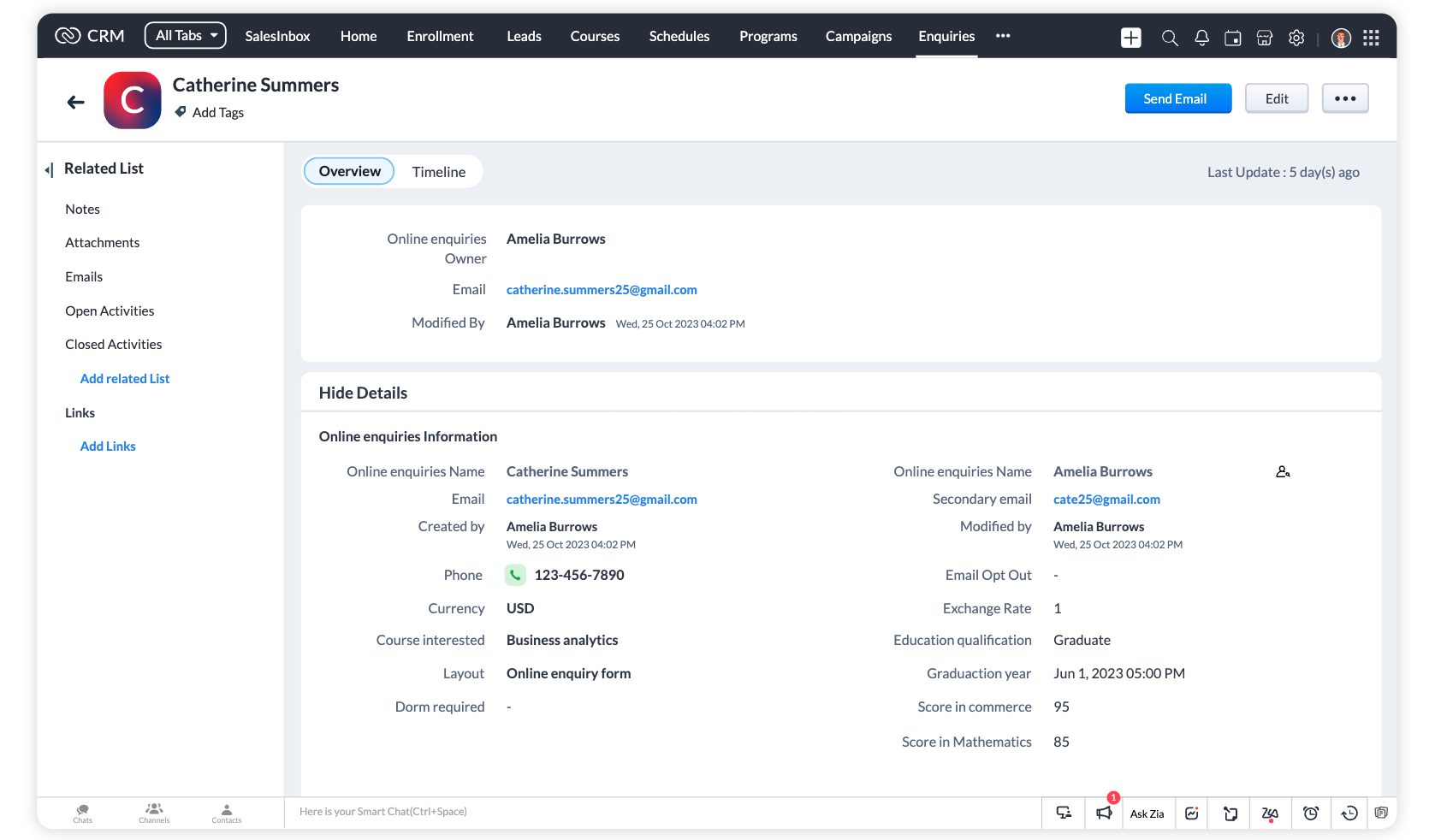
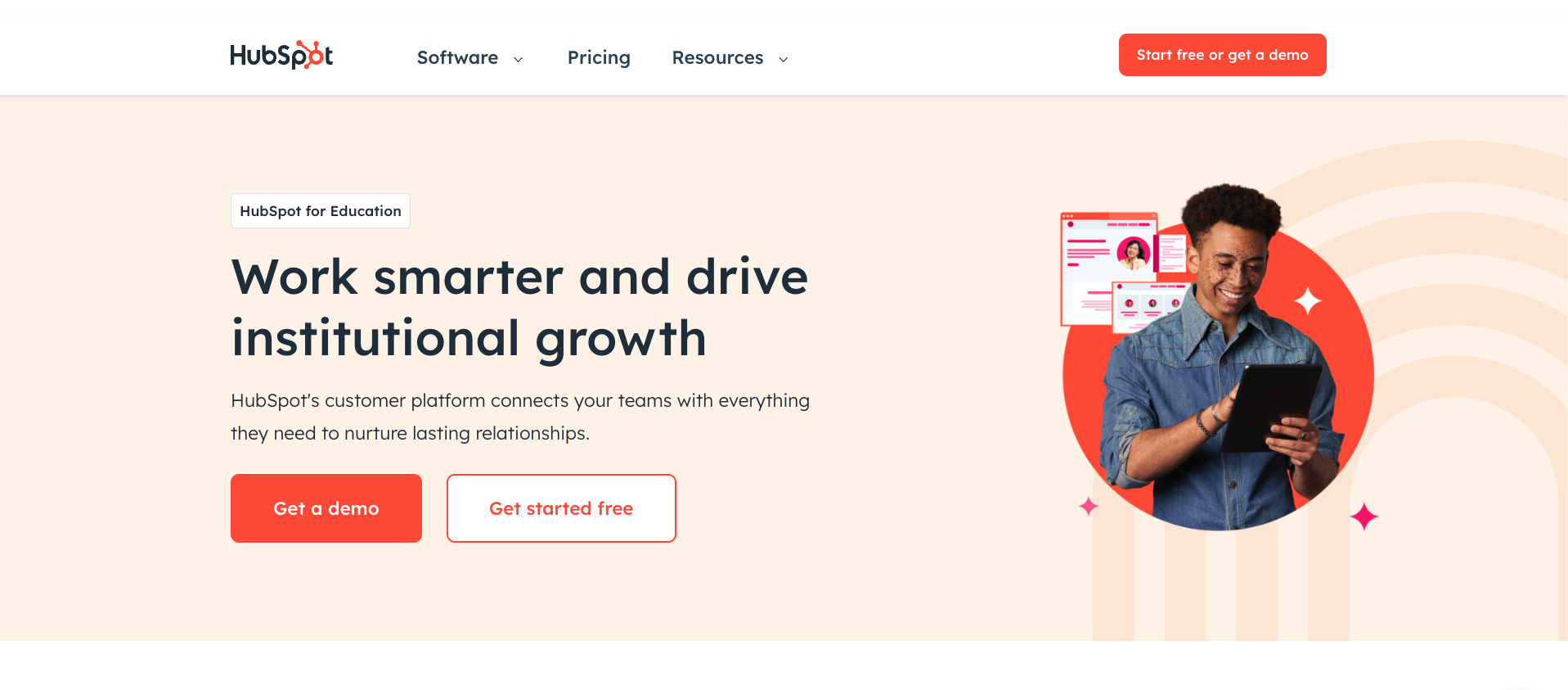
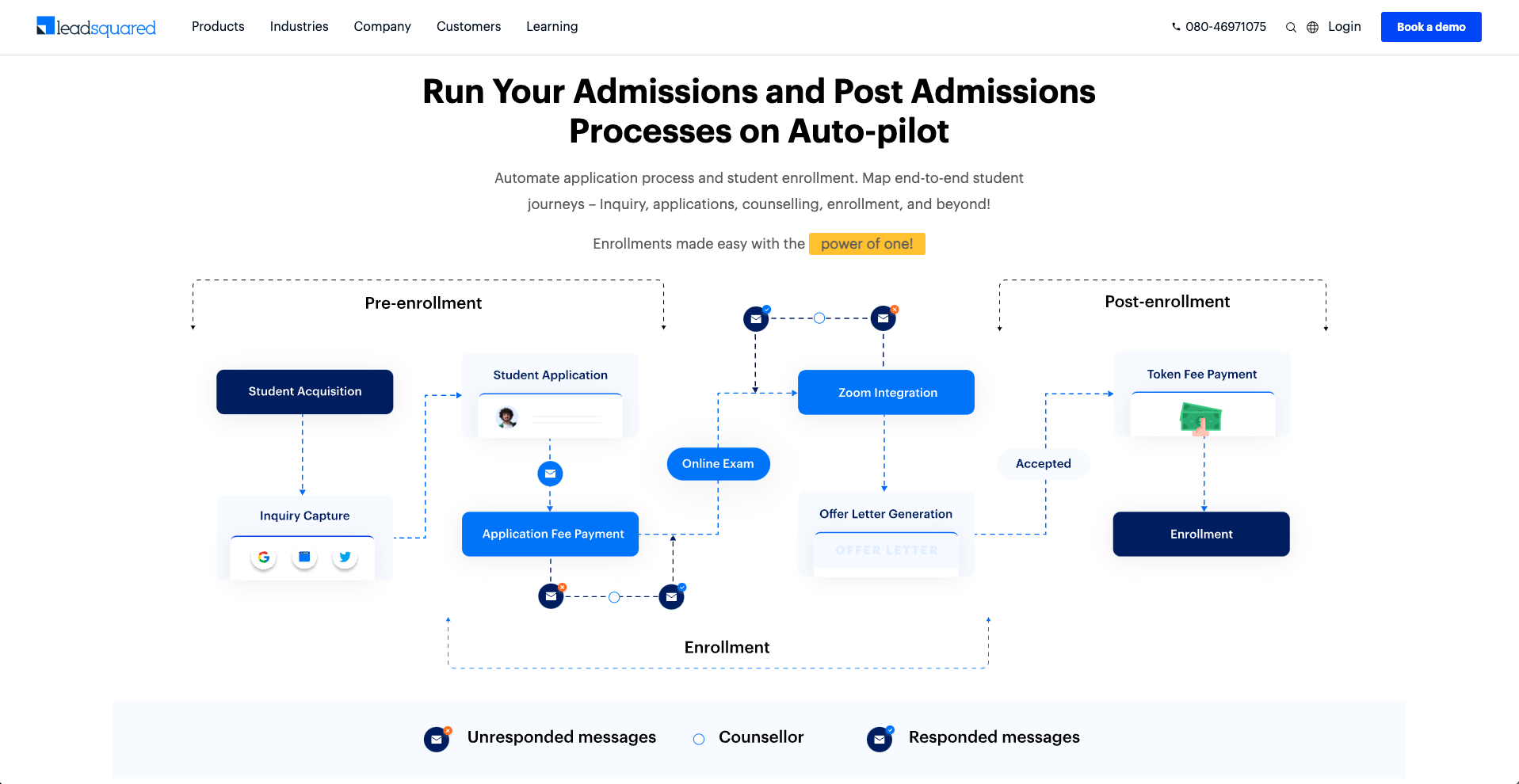





























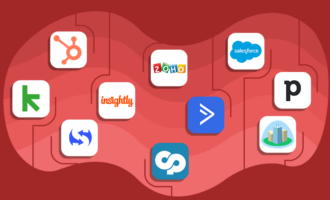


























Send Comment: